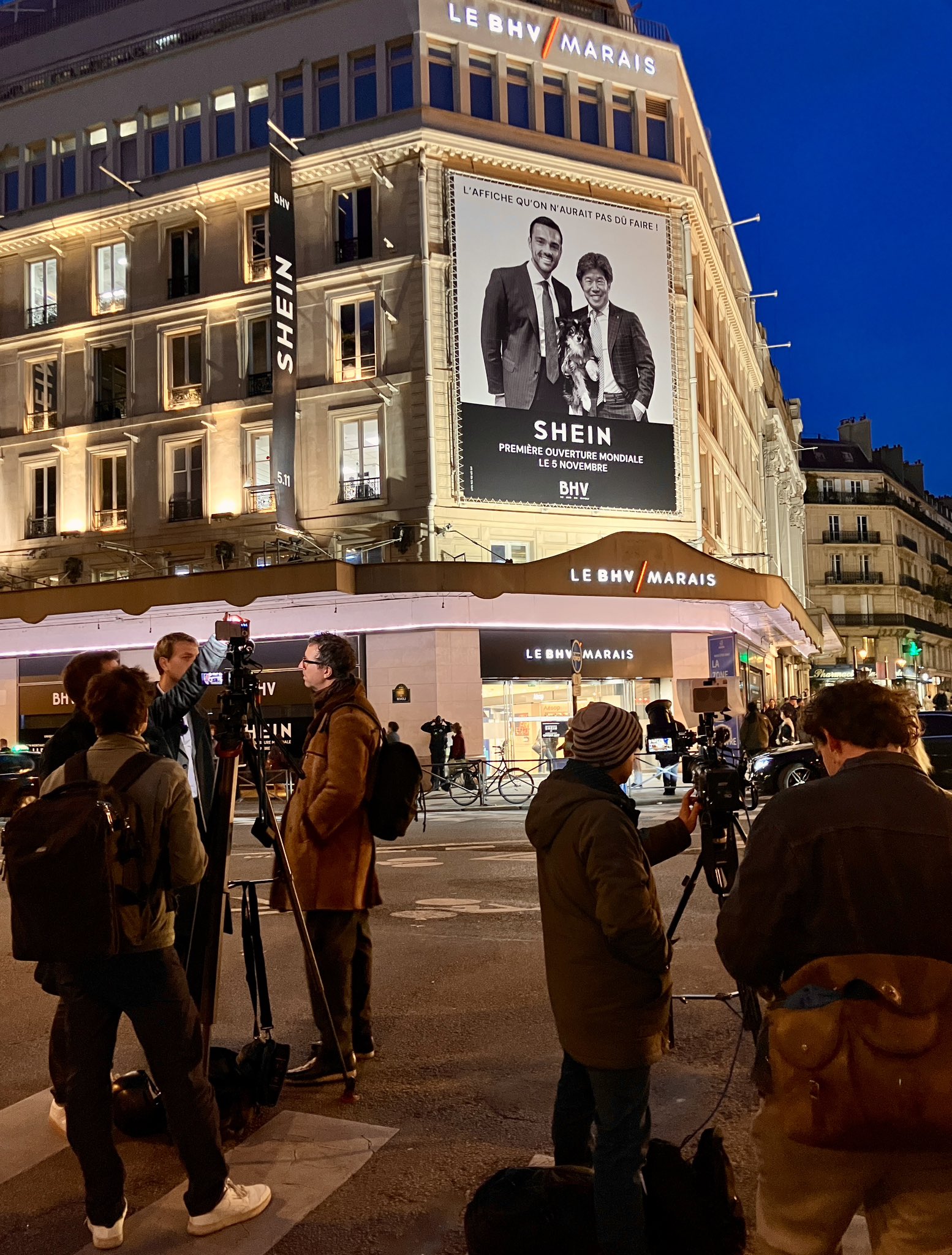News
Protests, Police And Price Hunters Collide As Shein Opens First Store In Pari

Shein’s first permanent store opening in Paris was supposed to be a celebration of global retail success. Instead, it became a symbol of the cultural divide between affordability and ethics and a flashpoint in France’s battle over fast fashion.
Tension In The Marais
The 19th-century BHV Marais department store known for its elegant façades and Parisian charm was swarmed on Wednesday morning, hours before Shein opened its doors at 1pm. Outside, chants of “Shame on Shein” echoed through the streets, while riot police stood by as protesters waved placards denouncing the retailer’s low-cost, high-volume model.
At the same time, dozens of eager shoppers lined up, some clutching their phones, ready to snag the first in-store deals. For them, it wasn’t about politics it was about price.
“I came because everything is getting expensive,” said IT worker Yuting Yu. “Right now, with the economy going down, people don’t have money to buy good things.”
A Controversial Retail Experiment
The Chinese e-commerce giant’s Paris debut wasn’t random. The Société des Grands Magasins (SGM), which operates BHV, invited Shein to set up shop in an effort to lure younger consumers back into traditional stores.
“Every day we’re told that physical retail is dying,” said SGM chairman Frédéric Merlin on BFM TV. “Without innovation, the future doesn’t look bright.”
To sweeten the deal, Shein offered shoppers a unique promotion: whatever they spent at Shein could be redeemed as vouchers at other stores within BHV an attempt to show that fast fashion could coexist with France’s legacy retailers.
Political Backlash And A Fast Fashion Reckoning
But not everyone was buying it. Lawmakers across the political spectrum including Paris mayor Anne Hidalgo condemned the move, calling it a betrayal of France’s textile heritage.
“We’ve fought against Shein for two years,” said MP Anne Violland, who helped draft a proposed law targeting ultra-fast fashion. “To see it open inside a building that symbolizes French craftsmanship is an unacceptable provocation.”
That law, still under debate, would slap extra fees on every fast-fashion item sold in France and potentially ban platforms like Shein from advertising altogether.
Scandals Fuel The Fire
Public outrage deepened this week when French authorities discovered that third-party sellers on Shein’s website had listed child-like sex dolls. Finance minister Bruno Le Maire threatened to ban the platform entirely if the issue reoccurred.
Shein responded by permanently banning such products and sanctioning offending vendors. Still, the scandal has added fuel to ongoing investigations into alleged child exploitation content found on online marketplaces, including Shein.
Fast Fashion At A Crossroads
France’s response to Shein is part of a broader European reckoning with the environmental and ethical costs of cheap clothing. With over 27 million monthly users in France between February and July, Shein’s popularity underscores a deeper contradiction: while consumers decry wasteful fashion, they also can’t resist a bargain during a cost-of-living crisis.
Government spokesperson Maud Brégeon acknowledged this tension in an interview: “Good quality clothing is sometimes too costly, and many people are struggling. But we all have an individual responsibility in how we consume.”
The Bigger Picture
For some, the opening marks a new retail era one where the digital and physical worlds collide. For others, it’s a wake-up call about the true cost of “cheap.”
As police guarded the doors and protesters filled the Parisian air with chants, Shein’s debut became less about clothes and more about conscience. Whether this experiment thrives or falters, it has already forced France and perhaps the world to confront the uncomfortable question: what price are we really willing to pay for fashion?
{Source:SABC News}
Follow Joburg ETC on Facebook, Twitter , TikTok and Instagram
For more News in Johannesburg, visit joburgetc.com



























